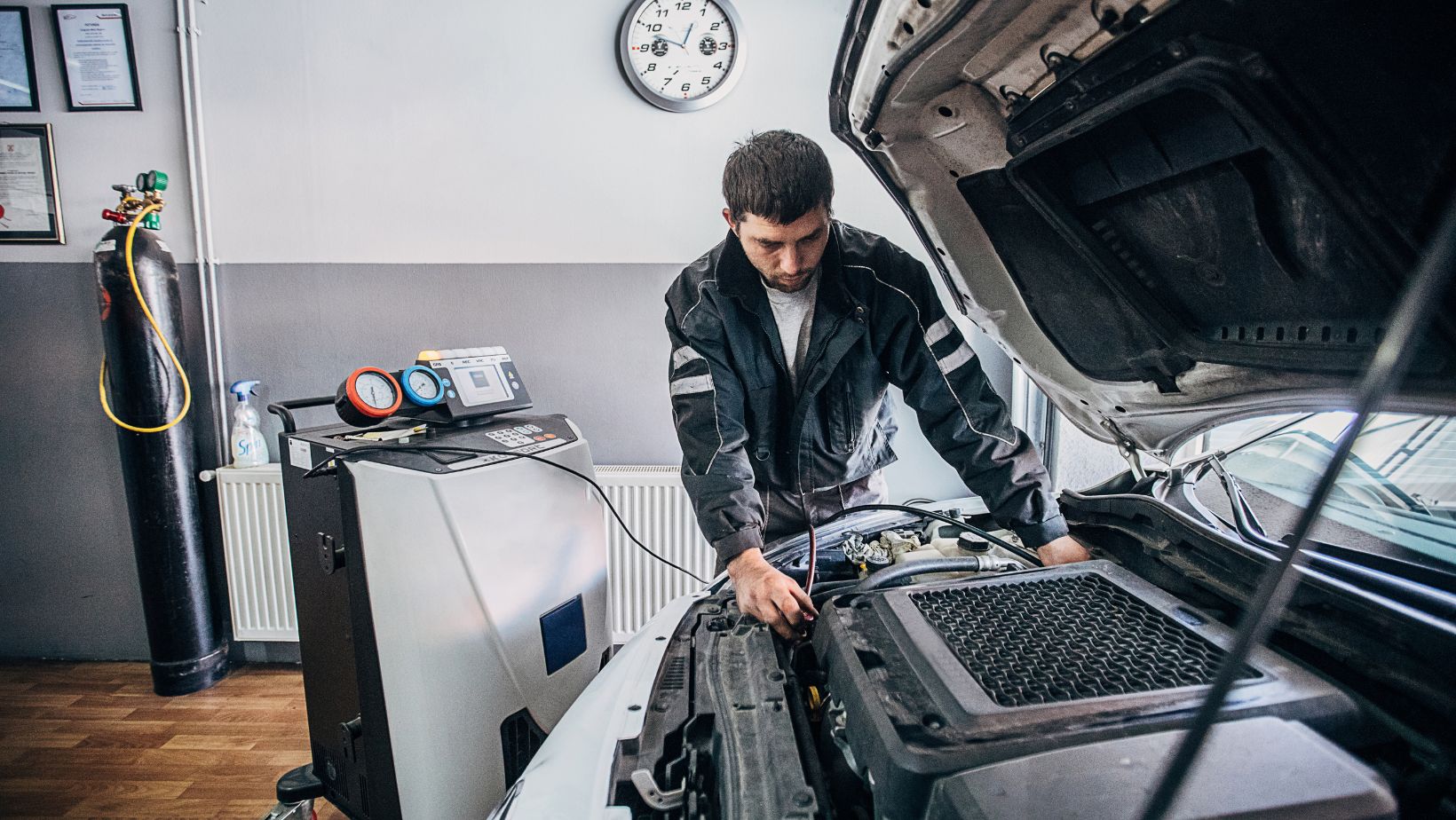 Car AC Leak Repair Cost
Car AC Leak Repair Cost
Car AC leak repair costs can vary depending on the extent of the damage and the specific repairs needed. When faced with a leaking car AC system, it’s important to address the issue promptly to ensure optimal performance and prevent further damage.
Fixing an AC leak can range from relatively affordable to more expensive, depending on factors such as the leak’s location, whether it requires a simple seal replacement or a more extensive repair, and whether any additional components need to be replaced. Identifying and repairing the leak may be straightforward in some cases, while in others, it might require specialized equipment and expertise.

Common Causes of Car AC Leaks
Damaged AC Condenser
One common cause of car AC leaks is a damaged AC condenser. The condenser plays a crucial role in the air conditioning system by converting refrigerant gas into a liquid state, allowing it to cool down the air that blows into your vehicle’s cabin. Over time, the condenser can sustain damage from rocks, debris kicked up from the road, or even normal wear and tear. This damage can result in small holes or cracks in the condenser, leading to refrigerant leakage.
Faulty O-Rings or Seals
Another culprit behind car AC leaks is faulty o-rings or seals. These components are responsible for maintaining a tight seal between different air conditioning system parts, preventing refrigerant from escaping. However, due to prolonged exposure to heat and pressure fluctuations, these o-rings and seals can deteriorate over time. When worn out or damaged, they may no longer provide an effective barrier against refrigerant leaks.
Clogged Drain Line
A clogged drain line is yet another potential cause of car AC leaks. As your vehicle’s air conditioning system operates, it produces condensation that needs to be drained away properly. This task falls upon the drain line, which allows excess moisture to escape from the evaporator core area. However, if this drain line becomes clogged with dirt, debris, or mold buildup over time, it can obstruct proper drainage and lead to water leaking inside your vehicle.
Remember that regular maintenance and inspections are key to preventing potential AC leaks and ensuring the longevity of your car’s air conditioning system. By addressing these common causes early on, you can avoid more extensive and costly repairs in the future.
Signs and Symptoms of a Car AC Leak
Regarding your car’s air conditioning system, a leak can be a major problem. Not only does it affect the performance of your AC, but it can also lead to costly repairs if left unaddressed. In this section, I’ll walk you through common signs and symptoms that indicate a car AC leak.
- Weak or Warm Air Flow: One of the first signs of an AC leak is when you notice that the air blowing out of your vents isn’t as cold as it used to be. If you find yourself constantly adjusting the temperature dial to no avail, there’s a good chance that refrigerant is escaping from the system.
- Frequent Need for Recharging: Have you noticed that your car’s AC seems to lose its cooling power more frequently? If you find yourself refilling refrigerant more often than usual, it could indicate a leak in the system. While adding more refrigerant might provide temporary relief, it won’t fix the underlying issue.
- Puddles or Moisture Inside the Car: Another telltale sign of an AC leak is finding water puddles or excessive moisture inside your vehicle. This occurs when condensation builds up due to refrigerant leaking into areas where it shouldn’t be, like under the dashboard or on the floor mats.
It’s essential to consult with a professional mechanic or an automotive service center for an accurate assessment of your car’s AC system and an estimate of the repair costs. They will be able to diagnose the source of the leak, provide you with a detailed breakdown of necessary repairs or replacements, and give you an estimate tailored to your specific situation.
Taking these steps ensures you are fully informed about potential expenses before proceeding with any repairs.

 Car AC Leak Repair Cost
Car AC Leak Repair Cost




































